
Brad Evans: I Know I Will Never Write a Better Book
If the measure of writing is to get as close as we can to the truth of existence, I know I will never write a
In this edited extract from 1966 and Not All That, Sanaa Qureshi discusses the relationship between football and nationalism, and whether football can be used subversively to achieve social justice.
1966 and Not All That (paperback + free ebook and free shipping to the UK) is currently half price as part of our World Cup sale, which runs until England are knocked out of the tournament!
“I enjoy making revolution! I enjoy going to football!” — Antonio Negri
Despite an increasingly globalised world, where in the last ten years, football clubs such as Manchester United, Real Madrid, Barcelona and Bayern Munich have become global brands, international football remains understandably pinned to the idea of triumphant nation states. Thus state orders are reinforced and a popular nationalism is commodified. As part of this, England’s World Cup win in 1966 remains, justifiably, a great source of national pride. The memories of that victory continue to fuel contemporary ideas of what success for the national team looks like.
In 1996, thirty years after the famous win, England hosted the European Championships and St George’s flags, for the first time in my short life, were inescapable. Perhaps it was because England were facing Scotland in the group stages or because England were hosts, but somehow, the Union flag, with all those colonial traumas stitched into its fabric, was replaced by the St George’s flag as the English patriot’s symbol of choice.
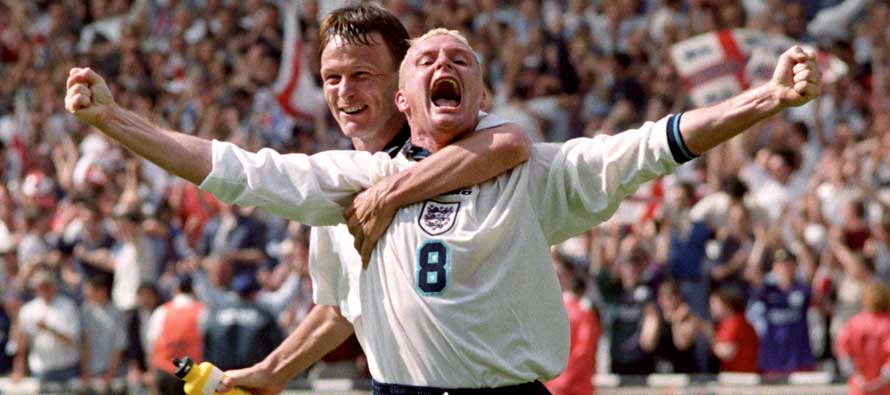
However, somewhere amidst the fervour of late 1990s “Cool Britannia” and New Labour, the St George’s flag also became the divisive symbol of the bullish, racist nationalism of the British National Party. Virtually no broadcast or news story about the BNP came without the familiar sight of the red and white flags or supporters adorned in England football shirts. With the far-right party picking up council seats and their candidates contesting parliamentary elections and holding on to their deposits, their rhetoric became mainstream. Thus, the St George’s flag became synonymous with modern English fascism. Moreover, the formation and subsequent rise of the English Defence League (EDL) was closely linked to a subculture of football fans coming together against their imagined enemy of Islam. Members often seen draped in football paraphernalia, specifically England shirts, routinely take part in violent street demonstrations.
It is undeniable that English nationalism, footballing or otherwise, is viscerally bound up with an aggressive racism that demarcates who belongs and who is the unwanted Other. Invariably, there are groups of people, particularly those who have been targets of the BNP or EDL, that are reluctant to embrace the English national team and the associated aggressive patriotism.
Yet despite, or perhaps because of, how vigorously England, the St George’s flag and the support of the national team has been hijacked by the isolating politics of nationalism, people believe the potential for subversion is even greater. Individuals and groups from minority communities in Britain have sought to reclaim the idea of Englishness from the far-right and to broaden the understanding of what it means to identify as English. Progressive ideals have been situated underneath a banner of nationalism that purports to be inclusive, welcoming and multi-cultural. England shirts have been worn proudly, the red and white a signal of support for a new, refreshed demonstration of Englishness.
Movements to reclaim and rebrand words and cultural associations have been favoured as a means of asserting alternative theories and ideas, albeit incrementally. However, it is difficult to assess how useful or sustainable this attempted reclamation can be without the accompaniment of the wholesale reframing of the issue, in this case, the concept of the English nation state. Further, can it be considered realistic for people of colour to reform an identity whose values are intrinsically bound up with whiteness?
Feelings of alienation are often exacerbated when international football tournaments come around and the success of the nation state appears to be so heavily hinged on the success of the national football team. Fifty years on England’s famous victory football has irrefutably shaped what English national success looks like and at the same time continues to provide a tool to interrogate what Englishness looks like. The commodification of nationalism through international sporting events thus serves as a useful means to understand how collective identities are fractured, formed and expressed through football.
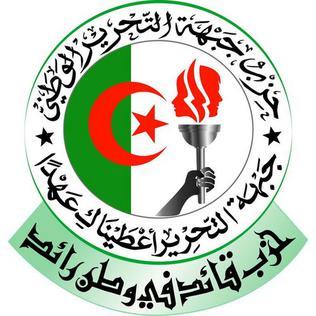
The relationship between nationalism and football is complex and often fraught with reactionary politics. However, the sport also serves an important role in the formation of collective national identity in post-colonial states. Famously, Algerian players in the French league formed the Front de Liberation Nationale (FLN) in 1958, a team that exported the desire for Algerian self-determination and liberation from the French throughout North Africa, the Middle East, parts of Europe and Asia. Similarly, the Iraqi national team’s achievements in the 2007 Asia Cup were set against a backdrop of continued violence, occupation and logistical difficulties. Victory brought together an often fragmented country and a sense of Iraqi national pride was keenly felt throughout.
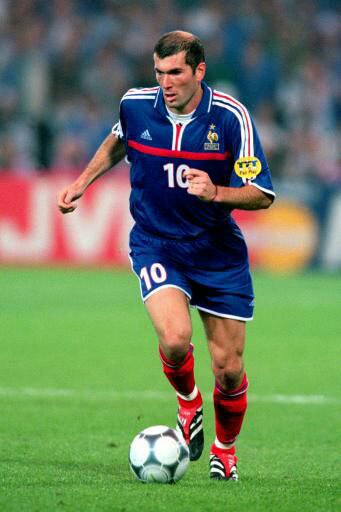
French success in the 1998 World Cup, which was also held on home turf, was heralded as a defining moment in the previously difficult narrative of integration. With a team led by the inimitable Zinedine Zidane, French-born to Algerian parents, and composed of players whose backgrounds told a story of French colonialism, this was supposed to be a turning point in French race relations. Instead, it has come to signify the shallow understanding of racial, economic and social inequality that continues to plague French society. The World Cup victory of a multi-cultural France allowed the French state and media to temporarily plaster over deep fissures without addressing the root causes of discontent. Owing to the universal nature of the game, the cohesion and success of a football team can be very easily translated into populist notions of unity and togetherness. Likewise, these concepts are often inspired by the collective spirit integral to team sports.
Despite its limitations, international football is situated in a unique position, where individual relationships with the state coalesce into either a collective sense of belonging or unbelonging. To be able to understand how people and communities relate to their national football team is to gain an insight into how they relate both to themselves and where they live.
The burgeoning cultural and financial potency of world football has benefited from an increasingly networked, globalised world. Football has grown in stature as a worldwide game, transcending borders, languages, races and religions. The simplicity and the aesthetics of play have contributed to its ascendant popularity, whilst free-market economics have encouraged both the corporatisation and commodification of the game.
Investment in stadium infrastructure in England was kick-started by the birth of the Premier League and the virtual end of live-televised league football on free domestic channels. Ultimately, the transformation of how the sport was both accessed and managed lay in the increased exposure provided by Sky TV. Principal income streams switched from match-day takings, including tickets and merchandise, to the ever-growing sums from TV deals, while the football stadiums became sites for executive boxes, naming rights and touchline-to-touchline advertising and sponsorship.
In line with neoliberal economics, the influx of new money did not remove inequality but instead exacerbated it. Well-established football clubs that already had money were able to tighten their financial grip on professional football, whilst those at the lower end of the spectrum continue to drift further away, facing administration and a future of financial uncertainty. As television money pours into the English Premier League, the maldistribution of wealth is a salient reminder of the society it is situated in.
Alongside the increase in capital flows, labour flows have also predictably broadened, bringing players from all over the world to the top European leagues. This mobility of labour not only diversified talent but also undoubtedly improved the standards of football across the world, especially Europe where many of these players sought to forge careers. However, with this movement arose ample opportunity for exploitation, particularly of young Africans, who were trafficked on false promises to jobs that didn’t exist. With such vast quantities of money thrown around at the highest levels of professional football, the potential for injustice is amplified, particularly in the search for social mobility and economic security. From countries still in recovery from the economic and social destruction suffered under British colonialism, professional football in Europe is considered a viable route out of poverty for many young men in Africa. Not dissimilar from the movement of migrant labour into often precarious, low-paid work in bad conditions in Western Europe, football is not exempt from its role in oppressive labour practices, nor is it very far removed from the spectre of colonialism. Flows of labour from the African continent also mirror neo-colonial resource-extraction models, with players viewed as raw materials that have their value added in the European academies. With fortress-Europe recklessly weaponising borders as a means of deterrence to incoming migrants, it is likely that this will only worsen in coming years, with only the most economically profitable allowed entry.
In England, the very foundation of the Premier League is the well-functioning football club, complete with the consistent exploitation of the lowest-paid workers, from club cleaners to catering staff. Despite the millions pocketed by star footballers, those at the other end of the spectrum, those who make matches possible, often scrape by on minimum wage. The astronomical increases in player wages and commercial revenues have not yet trickled down in any meaningful manner. After a lengthy and well-fought campaign by the Living Wage Foundation, the Premier League committed to ensuring all top-flight clubs will pay workers a living wage. However, this was stipulated to just include directly employed workers, excluding contracted staff, who are also often on precarious, zero-hour contracts. This short-sightedness on the part of Premier League Chief Executive Richard Scudamore demonstrated a real lack of desire to effect lasting change in labour policies not just in football but as an example to all employers. With burgeoning social and cultural influence both in England and the rest of the world, campaigners should use the football industry as a soapbox from which broader social change can be encouraged. Furthermore, for football to remain the most popular sport in the world, it should be willing to recognise its complicity in upholding systems of oppression, especially those from which it directly profits.
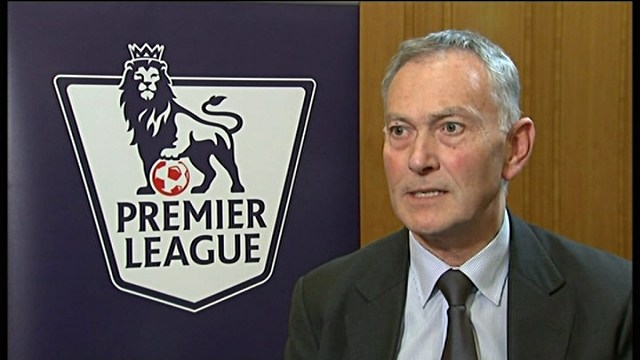
Amongst all the debates about whether football can be subverted to achieve social justice or if there is even a space for radical politics in a multi-billion-pound industry, one key thing stands out. Belonging. Whose game is it? Who should be most invested in the redemption of this beast? Those who are the architects of the spectacle or those who watch on, delighted? Numerous campaigns and movements speak about returning football to its roots, nostalgic for a time when football was the preserve of the working classes. Although it is true that football has been made successful through working class labour, the sport has always been controlled by the wealthy, capitalist classes. Codified in public schools, football was initially introduced to working class men as a means of civilising them. It is clear therefore that any reclamation of the game cannot take place at the top level — community-focused, fan-owned clubs are outliers, exceptions. To accept that this global game is too powerful, an uncontrolled monster, is not to give up on it. Instead, it allows us to focus on our communities, our local teams, our supporters groups, to direct our resources where we find utility. It offers up the potential for strength and solidarity beyond tribalism, to join up movements of resistance, from Palestine to Algeria to the militarised borders of Europe. It gives people a space in which to create a game in their own image.
Football is not separate from the society that supports it; rather it is irrevocably tied up with the most unjust systems of racism, patriarchy, homophobia, transphobia and capitalism. This, however, is precisely why the potential for resistance is so huge and necessary. The collective spirit in football, whether it’s on the street or in the stadium, is unparalleled. This is what must be harnessed to unsettle and destabilise systems of power, to liberate occupied peoples and to imagine a game that we can be proud of.
In The Wretched of the Earth, Frantz Fanon’s classic account of colonialism, he wrote:
If sports are not incorporated into the life of the nation, in the building of the nation, if we produce national sportsmen instead of conscious individuals, then sports will quickly be ruined by professionalism and commercialism.
If it is too late for football to be used to build, we must be willing to use it to destroy.

If the measure of writing is to get as close as we can to the truth of existence, I know I will never write a

To accompany his latest piece with Tariq Goddard in The Quietus on True Detective Season 4 and the legacy of In The Dust of This Planet, Eugene
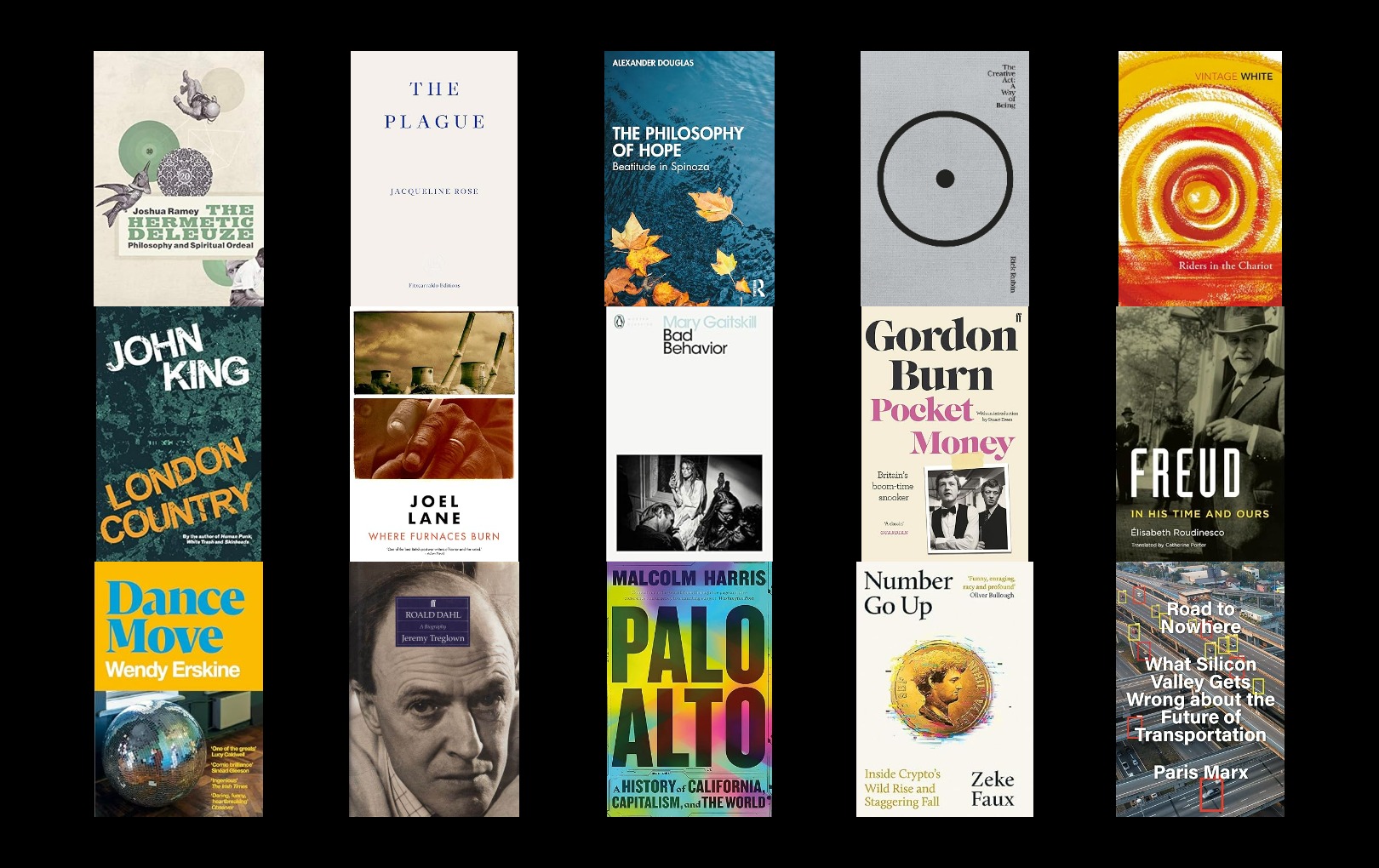
As another turbulent year draws to a close, the Repeater team put forward their favourite reads for the festive season. Publisher, Editor, and Author Tariq

If the measure of writing is to get as close as we can to the truth of existence, I know I will never write a

To accompany his latest piece with Tariq Goddard in The Quietus on True Detective Season 4 and the legacy of In The Dust of This Planet, Eugene

As another turbulent year draws to a close, the Repeater team put forward their favourite reads for the festive season. Publisher, Editor, and Author Tariq
